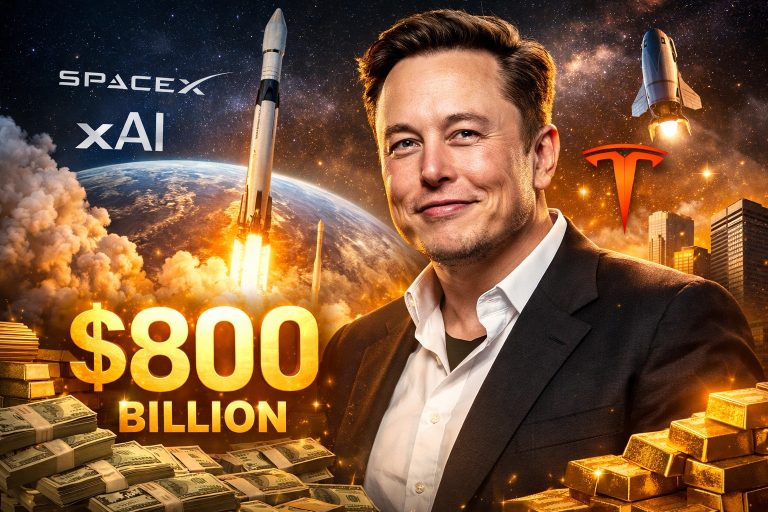
Quantum algorithms are a groundbreaking approach to computation that harnesses the principles of quantum mechanics, which is the science that studies the behavior of very small particles, such as atoms and photons. These algorithms can solve certain problems much faster than classical computers. In this article, we will explore the basics of quantum algorithms, why they matter, and some important examples, along with the challenges and future possibilities they present.
1. What is Quantum Computing?
1.1 Basics of Quantum Mechanics
Quantum mechanics introduces some fascinating concepts that differ significantly from classical physics. Here are some key ideas:
- Superposition: In classical computing, bits can only be 0 or 1. However, qubits can exist in both states at once. This ability to be in multiple states simultaneously allows quantum computers to process a vast amount of information at once.
- Entanglement: This phenomenon occurs when qubits become linked, so the state of one qubit directly affects the state of another, even if they are far apart. This connection enables quantum computers to perform complex calculations more efficiently.
- Interference: Quantum algorithms can use interference to combine probabilities. By reinforcing the chances of correct answers and canceling out incorrect ones, they can improve the overall accuracy of the results.
1.2 Quantum vs. Classical Computers
Classical computers process information sequentially, meaning they handle one task at a time. They use bits as the smallest unit of data. In contrast, quantum computers can perform many calculations simultaneously due to superposition. This unique ability gives quantum computers the potential to solve complex problems much more quickly than classical computers.

2. Key Quantum Algorithms
Several quantum algorithms stand out for their ability to tackle specific problems more efficiently than classical counterparts. Here are some of the most important ones:
2.1 Shor’s Algorithm
Shor’s algorithm, developed by Peter Shor in 1994, focuses on integer factorization. It can factor large numbers into their prime components exponentially faster than the best-known classical algorithms. This capability poses a significant risk to current encryption methods, such as RSA, which rely on the difficulty of factorization for security. If sufficiently powerful quantum computers become available, they could break these encryption schemes, leading to a need for new security measures.
2.2 Grover’s Algorithm
Introduced by Lov Grover in 1996, Grover’s algorithm provides a quadratic speedup for unstructured search problems. It can search through an unsorted database of NNN items in O(N)O(\sqrt{N})O(N) time, compared to the classical search time of O(N)O(N)O(N). This makes Grover’s algorithm particularly useful for applications in cryptography, database searching, and any scenario where you need to find specific information among many options.
2.3 Quantum Approximate Optimization Algorithm (QAOA)
QAOA is designed to tackle combinatorial optimization problems, which involve finding the best solution from a set of possible solutions. It combines classical optimization techniques with quantum computing to find near-optimal solutions to problems like the Max-Cut problem. This algorithm is valuable in fields such as logistics, finance, and network design, where optimizing resources is crucial.
2.4 Variational Quantum Eigensolver (VQE)
VQE is particularly useful for quantum chemistry and material science. It helps find the ground state energy of quantum systems, allowing researchers to study molecular structures and chemical reactions. By simulating these processes accurately, VQE can lead to breakthroughs in drug discovery and the development of new materials.
3. Why Quantum Algorithms Matter
3.1 Speed and Efficiency
Quantum algorithms can significantly reduce the time needed to solve complex problems. For example, tasks that might take classical computers thousands of years to complete could potentially be done in mere seconds with quantum algorithms. This efficiency is especially important in fields like cryptography, optimization, and complex simulations.
3.2 New Ways of Thinking
The development of quantum algorithms encourages researchers and engineers to rethink traditional problem-solving approaches. It opens up new avenues for innovation, as scientists explore how to harness quantum mechanics for practical applications.
3.3 Real-World Applications
Industries such as finance, healthcare, and logistics are beginning to explore the potential of quantum algorithms. For example, financial institutions can use quantum algorithms for risk analysis and portfolio optimization, while healthcare can benefit from accelerated drug discovery processes.
4. Challenges and Limitations
Despite their potential, quantum algorithms face several challenges:
4.1 Error Rates
Quantum systems are highly sensitive to their environment, leading to errors caused by decoherence and noise. Developing error-correction techniques is crucial for building reliable quantum computers.
4.2 Scalability
Creating large-scale quantum computers capable of running complex algorithms remains a significant hurdle. Current quantum systems have a limited number of qubits, which restricts their computational power.
4.3 Algorithm Development
Not all classical problems have efficient quantum solutions. Researchers are actively working to identify new problems that quantum algorithms can solve and to improve existing algorithms.
5. The Future of Quantum Algorithms
As technology advances, the potential applications of quantum algorithms are vast. Ongoing research aims to overcome existing limitations, develop new algorithms, and integrate quantum computing with classical systems. The future may bring breakthroughs that could revolutionize industries and scientific research.
5.1 Hybrid Approaches
Combining classical and quantum computing could be a promising path forward. Hybrid systems can leverage the strengths of both types of computing to solve complex problems more efficiently.
5.2 Quantum Education and Workforce Development
As the field of quantum computing grows, so does the need for skilled professionals. Educational programs focused on quantum mechanics, computer science, and related fields will be essential to prepare the next generation of innovators.
Conclusion
Quantum algorithms represent a transformative shift in computing, utilizing the unique properties of quantum mechanics to solve problems that classical computers struggle with. Understanding these algorithms is crucial as we move toward a future where quantum computing becomes more mainstream. The potential to change various aspects of technology and society is immense, making it an exciting field to watch in the coming years.





